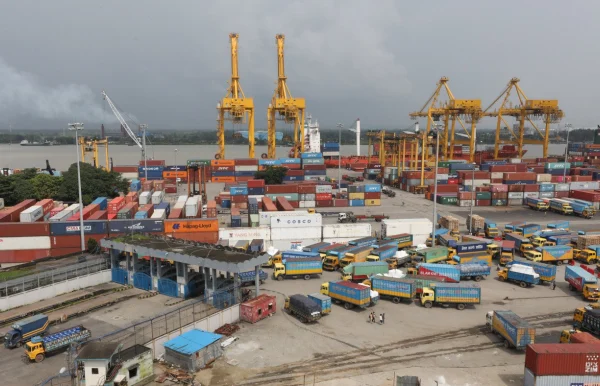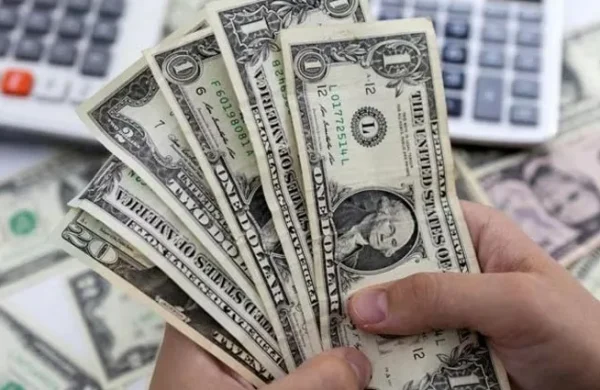Fuel price now below $80, but no effect in country
- Update Time : Wednesday, November 23, 2022

Special Correspondent:
The price of fuel oil has fallen below 80 dollars per barrel in the global market, but there is no effect of the price down in the country as the government has not yet been taken any step to reduce the price.
According to the sources, there has been a big drop in the price of fuel oil in the international market. In the past few days, it has dropped below $80, the lowest in two months. However, the government is still not thinking of reducing the price of oil in the country.
It is learnt from Reuters’ report that, WTI crude oil was sold at 79.11 dollars per barrel in the international market at 10:00 pm of Bangladesh time on Monday. Brent crude oil traded at $87.11. Brent crude was over $90 a week ago. WTI crude was over $85. On September 22, the price of WTI crude per barrel was 79 dollars 12 cents. And the price of Brent crude was 86 dollars 39 cents. Basically, due to the fear of recession in the world economy, the price of fuel oil has gone down.
It was good news for the global economy. The price of fuel oil per barrel in the international market has fallen below 80 dollars. This good news has come amid many worries and fears of recession. The high price of fuel oil, which was turning the world economy upside down, has seen a big drop in the price of that oil in the international market.
China, the world’s second largest economy, is still under lockdown in various cities. Anti-lockdown protests are going on everywhere. But the government is adamant. Because of that, the economic activities in the country have stagnated. Various organizations including the World Bank-IMF said that, China’s GDP growth will decrease quite a bit this time. The US dollar, on the other hand, reached its strongest position in more than two decades. Rising interest rates are driving major economies into recession. Reuters reports that, the price of fuel oil is falling due to this fear.
After the corona epidemic, there is a fear of a recession in the world economy due to the Russia-Ukraine war. Major countries, including the United States, continue to raise interest rates on debt to curb inflation. Other major economies are following the same path. And this is pushing the world economy towards recession.
According to a World Bank report on September 16, central banks around the world are raising policy interest rates to curb inflation. Due to this, the world economy is moving towards recession. The World Bank said that, the research report titled ‘Is the world recession imminent’, the world economy is in crisis due to the shock of the Russia-Ukraine war as soon as the pressure of the corona epidemic subsides. Inflation is increasing day by day. To control inflation, the central banks of various countries around the world are simultaneously increasing the policy interest rates. Due to this, the world economy is moving towards recession in 2023. Apart from this, the lockdown has started in China’s big cities to prevent the spread of Coronavirus. In view of this, fuel oil prices have decreased due to reduced demand.
Analysts said that, oil prices have fallen due to two main reasons. First, the world economy is not doing well. The footsteps of recession are heard in developed countries. This naturally reduces the demand for oil. Second is the rising of dollar price.
According to the Dollar Price Index, the dollar has gained 20 percent this year. A rise in the value of the dollar increases the cost of imports, which puts great pressure on countries like Bangladesh. For that reason, when the dollar rate increases, developing countries reduce their oil imports, which Bangladesh has also done.
Oil-based power plants have been shut down in the country to save dollars. The government has decided to reduce power generation, if the price of oil in the international market does not decrease.
When the price of fuel oil was fluctuating on average around $100 per barrel in the world market, the price of all types of fuel oil in Bangladesh was increased from 42.5 percent to 51.5 percent.
On August 5, the government increased the price of diesel and kerosene by Tk 34 to Tk 114, petrol by Tk 44 to Tk 130 and octane by Tk 46 to Tk 135.
Since then the fares of buses, trucks, app private cars, motorcycles, launches and human haulers have increased. The prices of essential commodities, which were already high, were further exacerbated by the rise in fuel prices.
According to the government, the price inflation has jumped beyond 9 percent to 9.52 percent.
However, the government ministers have been claimed that, if the price falls in the international market, the price of fuel oil will also be reduced in the country. After that, when the price dropped in the international market, it was reduced by only Tk 5 per liter in the domestic market on August 30.
Both types of oil were above 90 dollars then. However, there is doubt as to how long the trend of falling prices in the global market will continue due to the recession. Analysts fear OPEC will further cut oil output, if prices fall. It may reduce the price a lot.
While this correspondent tried to contact with the State Minister for Energy Nasrul Hamid yesterday to know whether the price of oil will be reduced in the country’s market, he did not response.
However, an official of the Ministry of Energy on condition of anonymity said that, “We are constantly monitoring the international market. The market has been rising for the past two months. In the last few days, however, it has decreased quite a bit. Have to wait a few more days. If it falls below 75 dollars, then maybe the government will think. From December 2020, the price of fuel oil started to increase in the world market. Oil prices have increased continuously even in the midst of the corona epidemic. As the corona situation starts to normalize, it is more upward. In late October last year, the price of both types of oil exceeded 80 dollars. At that time, the Bangladesh government also raised the price of diesel and kerosene by Tk 15 per liter to a new price of Tk 80.
When Russia attacked Ukraine on February 24, oil prices started to rise. At one point, it reached 139 dollars per barrel. Since then, oil prices have fluctuated between $110 and $115.
At the end of last May, the price of oil rose above 120 dollars. At the beginning of Corona pandemic in 2019 and 2020, when the lockdown was going on all over the world, the price of fuel oil fell to minus 37 dollars. That is, if one barrel of oil is bought, the buyer has been given 37 dollars. Then OPEC and Russia successively reduced oil supply and raised prices. In December 2020, the average price of oil per barrel in the international market was 42 dollars. In January 2021, it was $49. Since then, crude oil prices have averaged $53 per barrel in February, $60 in March, $65 in April, $64 in May, $66 in June, $73 in July and $74 in August.
This price rose to $85 in October. At that time, the price of oil was increased in the country’s market. After that, however, the price of oil came down a little. Due to the war, it increased again. With the Russian attack on Ukraine, the price of oil exceeded 100 dollars, sources revealed.

















